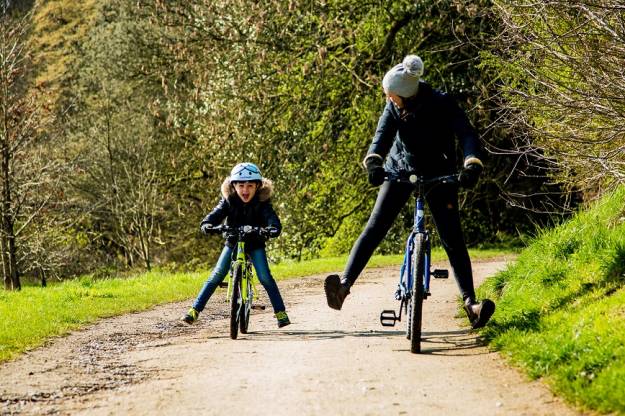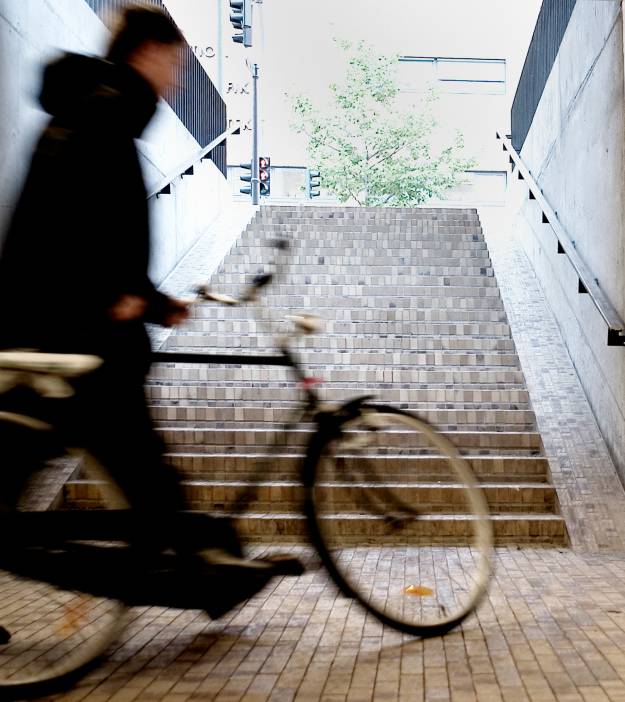Britain is now one of the most successful cycling nations in the world. Our Great Britain Cycling Team athletes are world renowned and have helped to inspire millions to take up cycling.
There are two million people who cycle at least three times a week, seven million who cycle at least once a month and 17 million who cycle once a year.
While we are getting it right in terms of elite success we have a long way to go to truly utilise the full benefits of a cycling nation.
Today, just 2% of journeys are made by bike. This level places us near the foot of the European leagues behind the likes of Germany, Slovakia, Austria, Portugal and Bulgaria.
There is strong demand for change but it will take long term planning, investment and leadership.
British Cycling wants to create a true cycling nation and will work hard to make it a reality.
Cycling stats

- The benefits of getting more people cycling are tremendous - even if you do not cycle.
- Cycling is a safe activity.
- As policy adviser, Chris Boardman, said ‘cycling is now safer than gardening’.
- 300,000 are injured in their garden compared to around 19,000 people when cycling (ROSPA 2014)
- There is just one death every 1,000 times pedalled around the Earth (HoCL 2013)
But cycling needs to look and feel safer:
- Adopting Dutch cycling infrastructure and safety standards could reduce cycling casualties by two thirds (Mindell et al 2012)
Is it safe NOT to cycle?

- Driving is a sedentary activity and partly responsible for our increasingly inactive lifestyles.
- Two-thirds of all car journeys are less than five miles - that’s just a 25 minute bike ride.
- Danish levels of cycling in the UK would save the NHS £17 billion within 20 years (Jarret et al 2012)
- For every person who replaces half of their car journeys by bike it delivers benefits worth £590 through improved public health, lower pollution and reduced congestion. (SQW 2008)
Cycling is getting safer in Britain

- There has been a 40% reduction since 1994 in cyclists killed on the roads (HOCL 2013)
- The ‘safety in numbers’ effect means that the more people cycle the safer it becomes. The Netherlands is currently the safest place in the world to cycle. It’s a completely normal part of everyday culture.
- In London, casualties have decreased by 8% despite the number of journeys doubling over ten years (TfL 2016)
- Thanks to British Cycling there are now two-million people who cycle once a week and this number is increasing rapidly.
Cycling myths busted

Helmets
While British Cycling recommends helmets we recognise their limitations of improving safety on the road (BMJ 2013).
That’s why we believe it should be down to personal choice and oppose any form of compulsion. What would make cycling much safer is if we implement the policies in #ChooseCycling such as redesigning roads and junctions with cycling in mind.
This is what countries like Germany, Denmark and the Netherlands do and they have a much better safety record than us despite hardly anyone wearing helmets.
Headphones
It’s best to use all your senses while riding a bike but your hearing is far less important than your sight. People who are deaf can ride perfectly safely while on the road. In the end we should all be looking out for each other.
Red lights
All road users should obey the rules and this includes stopping at red lights. We would like to see greater enforcement of the rules starting with those actions which can cause the most harm.
Bike registration
This is a bad idea. Cycling causes little to no harm to other people and is comparable to people jogging. Therefore if we required cyclists to be registered and carry number plates we’d have to do the same for runners.
Taxing cyclists
We all pay taxes to upkeep the roads through general taxation. Getting more people on bikes is extremely cost effective compared to other forms of transport and will bring massive benefits by saving the NHS billions, cutting congestion, reducing pollution and making nicer places to live.













